Before I get to the big news for the week – the long awaited Ethereum merge, I have a couple quick notes for you on my upcoming classes.
I will be delivering a guest lecture for Money and Banking classes at Lafayette College on Friday this week (unfortunately not open to the public). The open to the public course at Lehigh Carbon Community College course is rapidly approaching the registration deadline (5pm EDT Wednesday, September 14). It is a bargain at only $139 and includes two Tuesdays, September 20 and 27 from 6:30pm to 8:30pm EDT each evening. To register, call 610-799-1197 (press 3 for non-credit courses). Any questions or concerns do email me or call me and I’ll get you sorted out. Finally, I’m offering special discounts (deeper than shown on the web site) for my one on one Protect Your Crypto class. You can schedule to take the class anytime later, but to get the special price you need to email me and sign up this week – the offer expires midnight on 9/15. Class details are at: https://www.yourpersonalcryptoassistant.com/package-protecting-your-crypto/.
So, the Ethereum merge – What is it? Why does it matter? What impact will it have? Let’s dive in.
Ethereum (like Bitcoin and many others) currently uses a ‘proof of work’ approach to validate transactions on the blockchain. Basically this means that anyone who wants can run the software, look at all the incoming transactions and compete to be the first to validate the next block on the chain (that’s what mining is). Because the algorithms used require guessing many times to pick a workable answer it ‘proves an amount of work was done’ at least on average – hence proof of work. This has a number of advantages – in particular the investment required to participate is small, allowing many folks to validate – and reducing the likelihood that someone could cheat (double spend money) or censor (not allow someone’s transactions through). The more folks mining, the greater the cost (primarily in electricity) to complete a block and an even greater cost for someone to try and overwhelm the system (to cheat / sensor).
The Ethereum merge is when Ethereum will complete the transition from proof of work to proof of stake.
In a proof of stake system, validators don’t compete to guess the workable answer to complete the block instead they are chosen by an algorithm. Different chains have different rules for how you get to be a validator. The key component to all of them is that in order to be eligible to be a validator and earn the block transaction fees you must stake (hence proof of stake) some amount of the chain’s native coin. The idea is that if you have that amount at stake your interest will be aligned with the chain – if you don’t validate, cheat or censor you can be penalized by losing your stake – or the value of your stake might decrease if the chain is less successful. The electricity cost is much less than proof of work because only one validator working on each block. One key concern is the potential for centralization. Different chains have different rules. For example, ARK only allows 51 validators (those who stake the most ARK). Ethereum rules state that validators are required to stake a minimum of 32 ETH (currently over $50,000), as well as have significant hardware and bandwidth with very high uptime to participate – not something easy for a hobbyist / regular person to do. There is also the issue that since new ETH go to those that already have ETH with the amount received being proportional to how much you stake. This could be a rich get richer situation. There is also a concern that if a few large validators are pressured to implement national government censorship on the network this could co-opt the entire ETH network.
Ethereum’s move from proof of work to proof of stake is risky. There has been a lot of testing but there are no guarantees it will work. The official Ethereum.org page analogy is a spaceship doing a “hot-swap the new engine for the old mid-flight”. At this point there isn’t even a way for people to change their mind. If you stake ETH to the new proof of stake approach, there is no way to unstake or even claim your staking rewards. That will come in a change later – currently expected to be “a few months”. Many exchanges and pools are allowing folks to ‘stake’ less than 32 ETH to them – to let them do the actual staking – this has less rewards (they take their cut), and more risk – not only ETH risk, but intermediary custodian risk, though it does offer the ability to participate with a much smaller stake.
And just to keep it interesting, not everyone is on board with the change. There are organizations and people who plan to continue to support the existing proof of work ETH – which would result in a fork – two copies of Ethereum – one proof of work and one proof of stake. In theory all holders of ETH will then get one of each coin – but all of the DeFi and tokens and everything else that runs on top of Ethereum – will those folks honor both copies – or just one? And if so which one? If your ETH is on a platform or exchange (not in your wallet) you don’t have any control (Not your keys, not your coin). In that case, the platform or exchange will decide if you get both versions of ETH, or if only one which one. It seems like the proof of stake version has the dramatic portion of overall support, but you never know…
Now, the big question – will the merge go smoothly, or will there be issues? No one knows. – Even if there are no major issues, it is still possible that the success is baked in to the current price and after the merge the price of ETH will stagnate or even slip. And once folks can remove their stake, there may be a bunch of ETH for sale at once – dropping the price. Since this change doesn’t do anything to reduce the fees to use the network (those fixes are also planned for later) there may still not be any uptake of adoption post merge. It is also possible that this could be the beginning of a big run for ETH where usage and price / market cap increase dramatically and it approaches or possibly surpasses Bitcoin.
The good news – the wait is almost over – current expected time is Thursday, September 15 around 3am EDT. Check out Google’s easter egg timer (not sure how long they’ll keep it visible). Though – even at this late moment, it is also possible that those in charge may decide that things aren’t quite right and delay again. I think we are now up to 7 delays so far.
While Ethereum may have the headlines now, there are many other developments happening with Bitcoin and other crypto currencies. I hope these emails help you in your journey to become educated and participate in this amazing technology. If you ever want to stop receiving them, just email me and let me know – I’ll take you off my list. If you want more detail on this or other topics, I have a dedicated email just for answering crypto questions. Email me at Questions@YourPersonalCryptoAssistant.com any question you have, I’ll answer it. Personal instruction and assistance is my specialty –if you or anyone you know is looking for more than an email response to a question I provide one on one consulting and have a number of classes / consulting packages. This email is strictly for your education and entertainment, I don’t offer financial, legal or tax advice. You need to evaluate your own situation and risk tolerance and DYOR (Do Your Own Research). Do not put any money into crypto that you are not willing to lose.
Jesse

